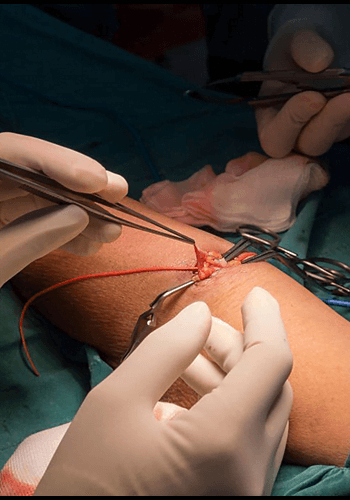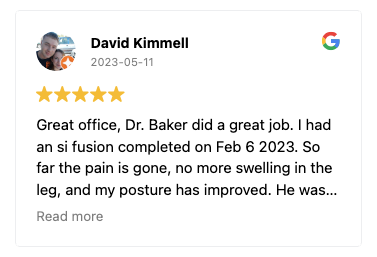Peripheral Nerve Surgery
Peripheral nerve surgery may be recommended to treat a variety of peripheral nerve problems.
Nerves that surround the brain and spinal cord are known as peripheral nerves. These nerves pass on information between the brain and the rest of the body. Any defect in the peripheral nervous system will lead to specific disorders, and your body may not function properly.
You may require peripheral nerve surgery if your peripheral nervous system has some defects and disorders. This surgery helps minimize the pain and enables people to work normally.
Request an Appointment
Why Do You Need a Peripheral Nerve Surgery?
It is reported that you will require peripheral nerve surgery for more than 100 different kinds of peripheral nerve disorders and syndromes. The most common ones are:
- Carpal tunnel syndrome
- Peroneal nerve compression
- Ulnar nerve compression
- Tarsal tunnel syndrome
- Traumatic nerve injury
- Thoracic outlet syndrome
- Foot drop injury
- Neurofibroma
- Spinal accessory nerve injury
- Traumatic nerve injury
- Meralgia paresthetica
- Ganglion cysts

Procedures Involved During Peripheral Nerve Surgery
Decompression Surgery
Peripheral nerve surgery involves different procedures. Usually, decompression surgeries are performed to remove pressure from the peripheral nerves.
When something presses nerves, it causes numbness and blocks the electrical signals transferring from the brain to the rest of the body. This results in muscle weakness and atrophy, so decompression surgery is done to remove the pressure on peripheral nerves.
There are two ways to do this surgery. The first is to remove the structure that pressurizes the nerve. The second is to pass the nerves by a narrow space that can be widened. This kind of nerve surgery includes carpal tunnel and cubital release surgery.
Nerve Repair
Sometimes peripheral nerves get damaged and need repairing. So, the dead tissues and scar tissues are removed by surgery. Besides removing, these damaged nerves are also reattached to their original position. For reattachment, nerves from the other body parts are taken and grafted on the injured nerve.
Nerve Transfer
When nerves are severely damaged, nerve transfer is the only option left for surgeons. In this surgery, the nerve surgeon will remove the nerves which are close to the damaged area. These nerves will replace the damaged ones. Through this surgery, the patient can restore movement, and pain will also be relieved.
Frequently Asked Questions about
Peripheral Nerve Surgery
What are the Benefits of Peripheral Nerve Surgery?
Peripheral nerve damage causes lots of abnormalities and disorders in the human body. That’s why surgery for nerve damage is carried out to remove the problematic peripheral nerves and restore the normal functioning of the peripheral nervous system. This surgery offers the following benefits to the patients.
- This surgery will help restore the lost sensation
- Motor functions will be regain
- The nerve surgery reduces pain
Are there any Risks or Issues with Artificial Disc Replacement Surgery?
What are the Potential Risks involved in Peripheral Nerve Surgery?


Dr. Baker specializes in neurosurgery, neurosurgical spine surgery, neurotrauma, brain tumors, spinal tumors, and peripheral nerve damage treatment.









